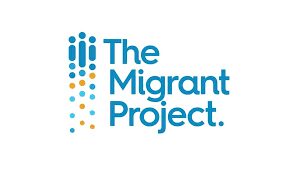To mark the 2019 International Migration Day, The Migration Project, TMP Nigeria has reiterated the need for journalists to tell the right stories about migration and humanising migration stories.
In a press release signed by Media Lead, TMP, Tayo Elegbede, he noted that migration stories often told by journalists are usually from the negative perspective and called for a change in the narrative.
Elegbede explained that, “the quest for many Africans to reach Europe through the Mediterranean sea has led to the death of over 1,200 lives in 2019. Unfortunately, more persons have died on land than on the Mediterranean sea. A lot more are either in detention in different countries or repatriated to their countries of origin.
“These migration stories are often told from the standpoint of economic and political struggles laced with biases, gross negativity, ideological supremacy, sensationalism and mere statistics without recourse to the humanity of those at the heart of the narratives – the migrants.”
To change the narrative, he advised that the right terminologies be used with focus on full and true stories instead of biases and speaking for all.
“One of the basic ways to humanise migration is to use the appropriate terminologies. Globally, there is a conscious effort to change the use of “illegal migration or migrant” to “irregular migration or migrant”. Humans are not illegal, although their migration decisions could be irregular to convention processes. Be sure of the usage of terms such as Asylum seeker, Refugee, Trafficking, Smuggling, etc.
“Migration stories are often about the negativities, deaths and crises. Migrants are doing amazing and positive things all over the world that are underreported or not reported. Avoid the one-sided narrative. Tell the full story – good, bad, beautiful and ugly. Be accurate, impartial, inclusive and fact-based. Your narratives need to be free from economic and political influences, emotion and sympathy but based on facts and transparency.
Noting the need to avoid emotions and show humanity, Elegbede said, “humanity is the essence of ethical storytelling. Remember, we are all humans but keep your emotions in check. Avoid victimisation, oversimplification and the framing of coverage in a narrow humanitarian context that takes no account of the bigger picture.
“Everyone has a story. Ensure that all parties involved have a voice. Speak to those affected by the migration crises; the community of origin, the transit and destination communities, beyond speaking with their representatives”, he added.
He quipped that, “avoid extremism, inflammatory content in text, pictures and videos. Take time to assess whether inflammatory content about migrants or those who seek to limit migration can lead to hatred. Words like “swarms”, “floods” and “waves” should be treated with caution, as should indiscriminate use of “racism” and “xenophobia.”

